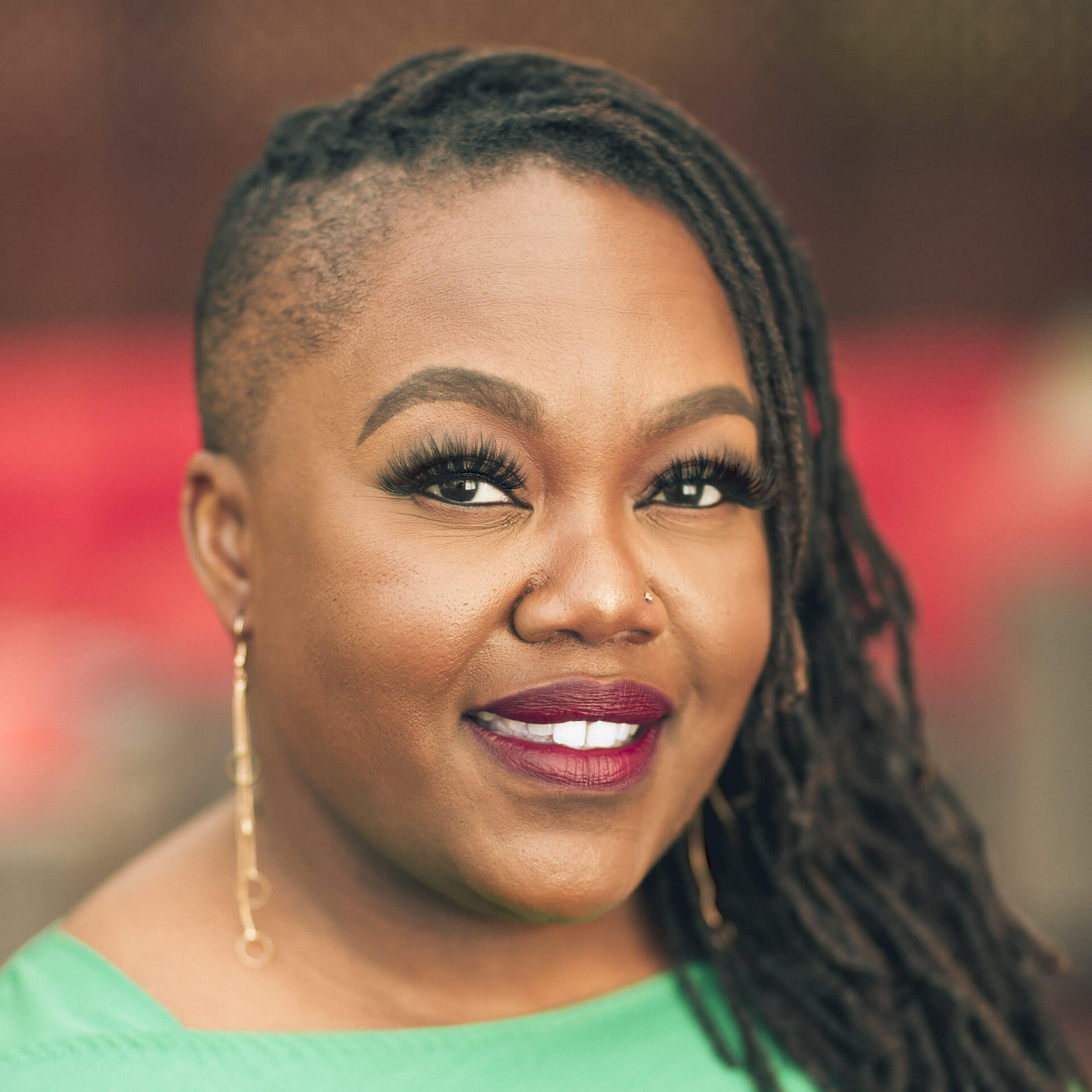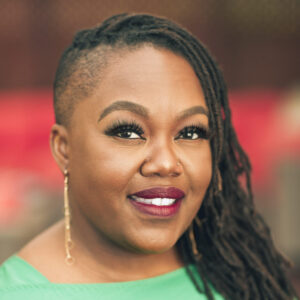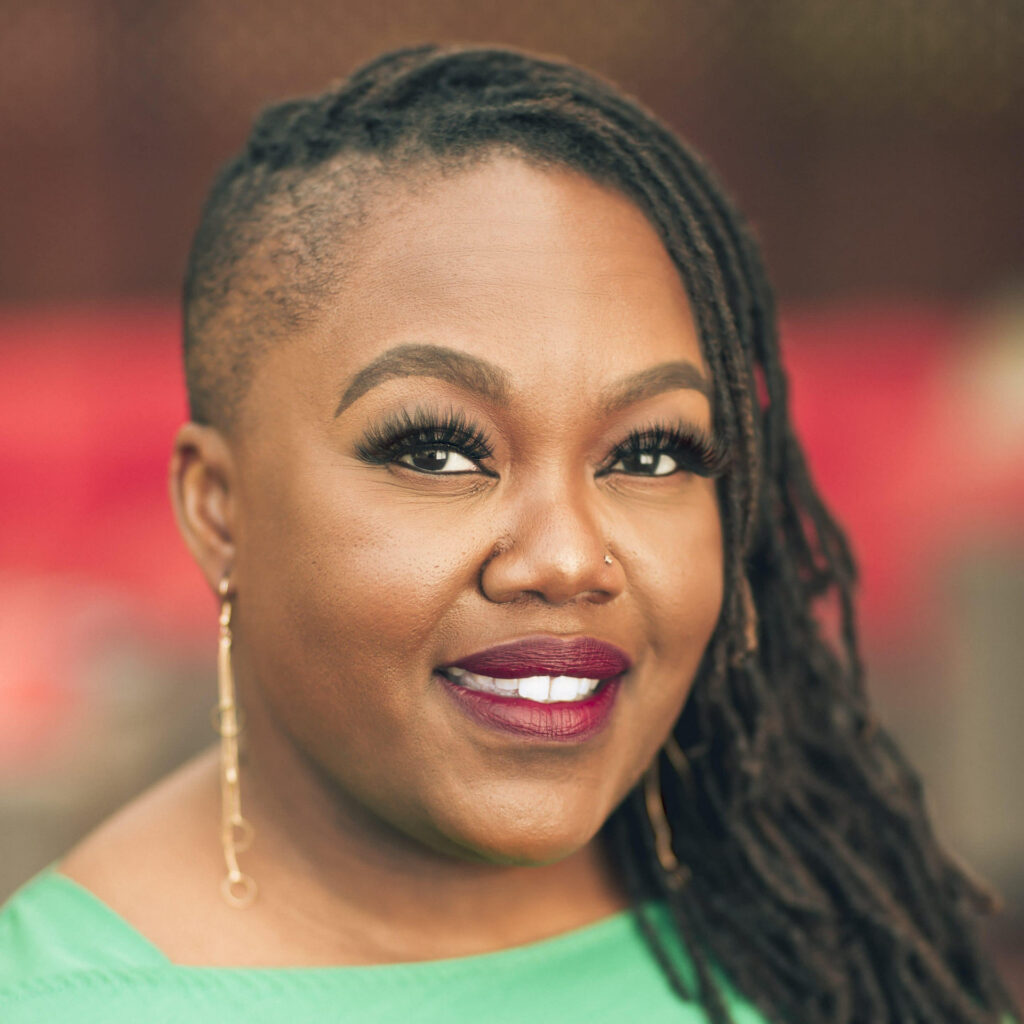Source: Michigan Ross

Leseliey Welch

Leseliey Welch
Leseliey Welch, who earned her MBA from the Ross School of Business in 2012, is the co-founder and CEO of Birth Detroit as well as the co-founder and co-director of the Birth Equity Center. She’s also a lecturer in Women’s and Gender Studies at the University of Michigan.
The Ross School spoke with her and other alums about their lives after graduation. You can read the full story here.
What is one of your proudest accomplishments (career/personal) thus far in your life?
Arundathi Roy has written about the pandemic as a portal. She writes about how pandemics have “forced humans to break with the past and imagine their world anew,” how COVID-19 is a “gateway between one world and the next.” The pandemic has been an open portal accelerating my heart’s work in the world. I am most proud of showing up fully and in collaboration with my awesome co-founders to meet the moment.
I am proud of how Birth Detroit showed up for families by opening our first neighborhood midwifery clinic during the pandemic (October 2020) to provide community-based prenatal and postpartum care by midwives and virtual childbirth education. I am proud of how Nashira Baril and I launched Birth Center Equity in April 2020 to show up for Black, Indigenous and people of color birth center leaders across the country.
Locally, in our first year, Birth Detroit cared for 100 families and provided childbirth education to 120 — all while continuing to plan for the Birth Detroit Birth Center to open in 2023. Birth Detroit will be the first freestanding birth center in Detroit and the first Black-led birth center in Michigan. Nationally, Birth Center Equity has raised more than $1.5 million and provided COVID-19 rapid response funds and general operating support to more than 25 established and developing BIPOC-led community birth centers. BCE is also designing a fund to leverage full-spectrum capital to grow and sustain birth centers led by people of color.
I couldn’t be more proud of my co-founders in both efforts, our board, advisors, partners, funders, donors, networks, and communities for the ways in which we have shown up for each other. We are demonstrating that we are leaders in our own care, and we are inviting others to lead with us in creating a world where all birthing people have access to all safe birth options, and maternal health equity is no longer an aspiration but a lived reality.
What passion projects or organizations are you involved with to help support, inspire, and/or advocate for the next generation of female leaders?
“How can women of color sustain a successful leadership journey?” has been an overarching question of my career, my studies, and my teaching. I have taught in Women’s and Gender Studies at the University of Michigan since 2004, with a focus on practicum courses that help students bridge the gaps between feminist theory and feminist practice in nonprofits and in cross-sector leadership. I’ve also been a primary instructor for the University of Michigan School of Public Health’s Future Public Health Leaders Program for several years. In both endeavors, I teach from a combination of head and heart, academic text, and lived experience. I aim to pour into my teaching everything I wish I had known, and inspire in my students the confidence and courage to lead their lives and create the worlds they dream.
What experiences did you have as a student at Michigan that helped contribute to your journey?
I jokingly tell people that I speak three languages: Feminism, public health, and business. At Michigan, I was able to explore all of my interests. I earned my undergraduate degree in women’s and gender studies, my master’s in public health, and my MBA.
Throughout my time at Michigan, I developed a unique tool box of technical and cultural skills, and grew a diverse network of relationships that undoubtedly prepared me for the work I am called to today.
What was one of the most helpful things you did to ensure you had a support team to help you grow and develop as a person?
Mentorship and coaching — I have had amazing mentors and coaches support, encourage, and advise me throughout my studies and career. I still do today and I am forever grateful. I have come to cherish these kinds of relationships and to be open to feedback for growth and lifelong learning.


